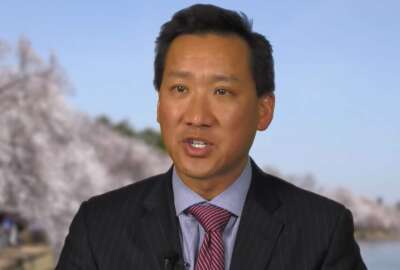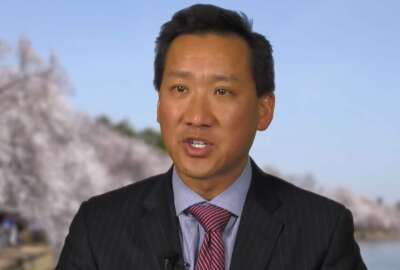
Can Pon boil the ocean?
Comprehensive civil service reform is too tall an order just for OPM and its director.
Office of Personnel Management Director Jeff Pon will need a lot of luck to get even a fraction of his agenda done. The messy history of civil service shows major reform only happens when both parties agree it must.
Civil service reform started with the Pendleton Act of 1883. It sought to bring merit and neutrality to the political spoils system and for a long time thereafter, presidents tried to retain as much patronage as they could.
A National Academies book published in 1999 contains an interesting tidbit. During his first term, Franklin D. Roosevelt managed to cut the percentage of federal employees under competitive civil service from 80 percent to 60 percent. He did it as the federal bureaucracy grew wildly under the New Deal. Old FDR knew what he wanted: a civil service that would carry out his policies.
That doctrine has become enshrined and refined. Federal employees must maintain political neutrality. But they are also obligated to carry out the policies of whomever happens to be in office at the moment. In that sense, federal management is not all that different from the corporate world.
If you don’t like political hustle and bustle, don’t work anywhere big — government or corporate.
Much mention has occurred lately of the Civil Service Reform Act of 1978. I have read several sources about it and one theme comes through: Jimmy Carter pushed for it, but not to make a world of milk and honey for federal employees. He wanted a bureaucracy more responsive to and controllable by the political class, all the way up to the Oval Office.
Carter sensed, too, that the public was fed up with the federal government. He was elected in the vortex after the Vietnam War and Watergate.
Civil service was due for reform. So many regulations and procedures had developed over the prior century that the whole thing had become sclerotic. The CRSA came about after a lot of reviews, reports, and action plans. Legislatively it was spearheaded by New York Sen. Abe Ribicoff and passed overwhelmingly in both chambers.
Forty years on, even many federal managers say they are ready for re-reform, or at least a refresh.
Back to Pon. As Federal News Radio’s Nicole Ogrysko reported, the Trump administration has ambitious plans for civil service. Pon seems to be the point person as OPM, in many ways, is adjunct to the White House.
It is not the strongest base on which to launch comprehensive reform, but it is hard to see how Congress would be capable of civil service changes.
Pon promises to operate on all fronts: Legislative, OPM authorities, agency authorities and executive authorities. He wants to examine veterans’ preferences, and pay in various technical job categories and types of agencies.
Pon wants to look at a new retirement plan with defined contributions that is portable for people who make federal employment other than a career. He wants to modernize how careers are tracked to eliminate the paper burden at retirement time.
This is all at an agency that took two years to come up with a rule for working part time before you retire.
Besides how to manage all this hoped-for change, Pon has to ask, what is the goal of reform? Is it to cut costs, trim back civil service protections or make everyone an employee at will? Is it to make it easier to hire, to pay more, to pay less , or to pay some more and some less?
You can find someone to argue for each one of these. What we have not seen is a unified idea for what a new civil service system would look like — at least not one that would draw Democratic and Republican votes. Until that gels, I would urge Jeff Pon to pick, say, three priorities within OPM’s power and see if he can get those done. He can be a leading voice to the larger effort.
But the larger Trump Administration workforce agenda — on Page 18 of the President’s Management Agenda — will require much more than OPM.
Copyright © 2025 Federal News Network. All rights reserved. This website is not intended for users located within the European Economic Area.
Tom Temin is host of the Federal Drive and has been providing insight on federal technology and management issues for more than 30 years.
Follow @tteminWFED






